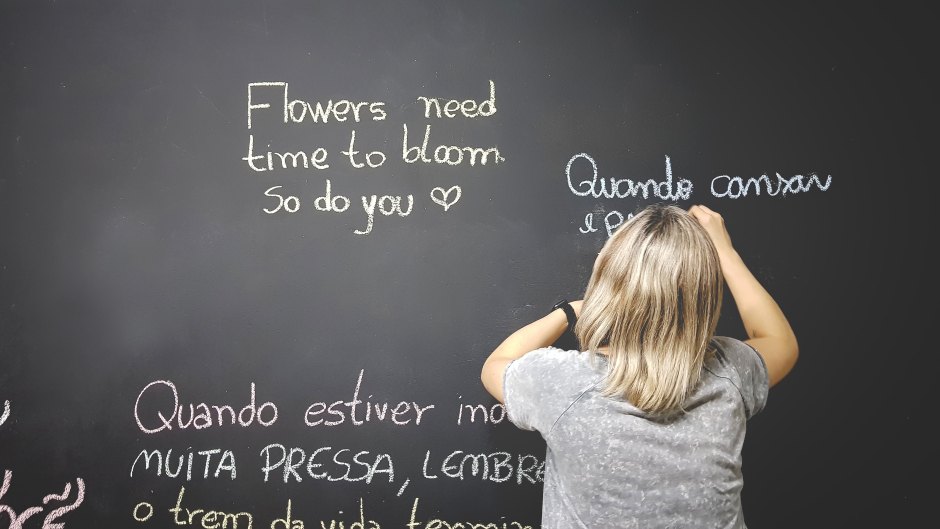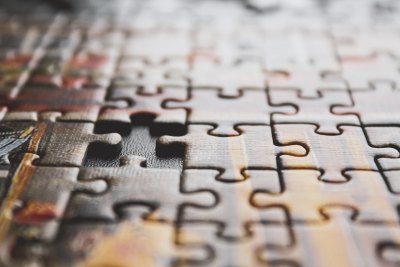
Unsplash
5 Hobbies That Support Cognitive Skills and Development
In Touch has affiliate partnerships so we may receive compensation for some links to products and services.
There are just as many aspects involved in our mental health as there are in our physical health. In fact, many of the same things that are involved in creating and nurturing physical health are also quite beneficial to our mental and cognitive development. This is true even through adulthood and into our later years in life. As such, it doesn’t matter what stage you’re in, or where you are in your journey, cognitive exercises that keep your mind sharp are important for anyone and everyone to practice. Cognitive skills are the skills that help us conduct critical thinking, problem solving, deducing, predicting, and manifest creativity. As such, they’re extremely important to start developing at a young age and the value of honing cognitive skills truly never wanes.
Whether you’re looking for a few ways to help your children work on and practice their cognitive skills, you’re in the height of your career and you want to keep your mental edge, or if you’re entering some of your final chapters and just want to be cognitively fit for as long as possible, these are a few healthy habits to start integrating into any routine.
“Your brain is one of the most complex computers in the universe. Although most of its tasks and abilities are hard-wired, you still must maintain them. Boosting your brainpower may be easier than you think, and it will help improve cognitive abilities.”
– Chris Butler, Co-Founder, Power of Positivity –
Puzzles, Games, and Brain Teasers
There’s no reason that working on cognitive skills has to be boring. In fact, there are a lot of different forms of games that can help improve, train, and hone cognitive thinking. Puzzles, checkers, chess, and a plethora of card-games all make players use cognitive skills regularly. This makes a family game night a great way to spend quality time together while also encouraging and developing cognitive skills together as a family-unit.
“If you’re looking for a fun-and-easy way to start practicing some cognitive skills with the whole family, a family-game-night is really the perfect avenue. It brings everyone together, it’s good for kids, adults, and seniors, and there are a plethora of games out there designed with cognitive development in mind.”
– Raina Kumra, Founder and CEO, Spicewell –
If you’re looking for something a little more individual that you can do in your ‘me-time’, there are other forms of cognitive thinking games that will fit this bill exactly. Crossword puzzles and sudoku are two of the best and most well-known games designed for individual play and cognitive development.
“I love sudoku. I do it every morning with my coffee and every night before I go to bed. It’s both relaxing and rewarding for me. More than that though, I feel a little bit more alert in my day-to-day life. I’m definitely sharper mentally because of sudoku.”
– Gigi Ji, Head of Brand and Business Development, Kokolu –

Learning an Instrument
Another extremely rewarding way to develop cognitive skills is through the learning of a new instrument. This is, again, a good activity for either kids or adults, and can be undertaken at virtually any age. Learning an instrument is good for our cognitive development because it forces our brain to interpret sheet music. Not only that, in order to successfully play an instrument we need to be familiar with the notes, various key-signatures, and a variety of other techniques involved.
“When I was a kid, I took piano lessons but then I sort of stopped and never got back into it. Well, when I turned 30, I decided I needed a new challenge in my life, and I thought – why not, let’s learn piano again. Learning an instrument in your 30’s is certainly a challenge – I’ll just leave it at that. I’m glad I did it though.”
– Maria Shriver, Co-Founder and CEO, MOSH –
One of the aspects involved in honing cognitive skills is developing and training creative thinking as well as critical-thinking. This is another way in which learning an instrument can help us develop our cognitive abilities, by improving our creative thinking.
“Everyone is a vessel of creativity. Some of us spend more time focusing on being that vessel, and allowing creativity to flow through us, while others have a tendency to stamp it out. Learning to embrace your creativity and inner-artist is really a beautiful evolution though. It can be very eye-opening.”
– Lionel Mora, CEO, Neoplants –
Exercise and Nutrition
When it comes to developing strong and comprehensive cognitive abilities physical exercise and nutrition play a much larger role than many people first realize. Eating a well-balanced diet that is full of fruits, vegetables, natural sugars, minerals, and vitamins is extremely helpful to feeding your brain the calories it needs to process, sparse, and relay information accurately. A healthy diet is vital to all aspects of your health, physically and mentally.
“A lot of fitness professionals and athletes are hyper-diet-focused because they know how important of a role nutrition plays in their career. What a lot of people don’t realize is that nutrition is equally important to the brain as it is the body.”
– Jason McNary, President, Brandon Blackwood –
Exercise, believe it or not, is also important in honing and developing cognitive abilities. Between opening up blood flow, allowing oxygen to flow more freely into the brain, and releasing endorphins, regular exercise can do wonders for your cognitive abilities.
“The brain, the body, and the spirit, are all linked. This is kind of the main principle of many forms of yoga. By training our physical bodies, we can improve our mental abilities, and even find a greater connection with our true-self.”–
– Chandler Rogers, CEO, Relay –
Learn a new Language
Learning a new language is a challenge for anyone, especially the older you get. However, this can be an excellent, and very practical way to keep cognitive abilities sharp, practiced, and honed. There is a lot of mental elasticity required to learn a new language, and a lot of critical thinking involved as well.
“I love to travel, so naturally language was something I had an interest in as well. I learned my second language when I was young, but then it wasn’t until my early adulthood that I really immersed myself in language-learning. It keeps me on my toes, that’s for sure.”
– Shaun Price, Head of Customer Acquisition, MitoQ –
In today’s day and age, there are plenty of ways to take learning a new language into your own hands, too. Programs like DuoLingo are completely free to use and offer users access to lessons across seemingly endless languages. Even ones that have long been extinct.
“I think it’s important to note, too, that we’re approaching a time in society that is unprecedented. A time in which there is greater global access than ever before. I think pretty soon it’s going to be necessary for everyone to learn at least two languages, if not more.”
– Alex Carroll, Founder, Caliber Games –
Get Enough Sleep
Sleep is an underrated life-saver. Getting enough rest on a weekly basis is absolutely vital for cognitive abilities. While everyone is slightly different and may not need a full 8 hours of sleep every single night, getting an ample amount of rest is proven to help our brains and our bodies continually function at a high level.
“When I was younger I would pull all-nighters all the time. I thought I was invincible until I had my first crash. It was about 2 days later, and I felt like I couldn’t move. That totally changed my perspective on sleep and burning the midnight oil in general.”
– Soji James, Lead Expert Certified Personal Trainer, 1AND1 Life –
Our brains and our bodies use the time during which we sleep to perform maintenance and recovery tasks. This includes healing internal physical wounds as well as completing what many psychologists refer to as a brain-data-dump. This data-dump is integral to making room in your brain for new sensory information the next day. The longer one goes without getting proper rest, the further their cognitive abilities will decline.
“Getting a proper night’s rest feels integral to me. I’ve had plenty of days where I wake up feeling groggy and over-tired, and it’s just hard to function. A good night’s rest is vital to a good day’s work.”
– Adam Nadelson, CEO, The I.V. Doc –
A few Final Thoughts on Staying Sharp
Staying cognitively sharp and honing critical thinking skills is important for anyone and everyone. No matter where you are on your journey, try integrating a few of these easy-to-build habits into your routine as they’re sure to help develop, train, and hone critical thinking, problem solving, creative thinking, and other cognitive skills.
Whether a family game night needs to be added to the calendar, or learning a new instrument sounds like just the right challenge for you, there’s a way for everyone and anyone to start practicing and improving their cognitive skills.
“It’s human nature to want to continually improve all aspects of our lives. Imagine how much better life would be if you could think more clearly, learn faster, remember more, make better decisions, and solve problems more easily.”
– Deane Alban, Writer, Be Brain Fit –
Conversation
All comments are subject to our Community Guidelines. In Touch Weekly does not endorse the opinions and views shared by our readers in our comment sections. Our comments section is a place where readers can engage in healthy, productive, lively, and respectful discussions. Offensive language, hate speech, personal attacks, and/or defamatory statements are not permitted. Advertising or spam is also prohibited.





































